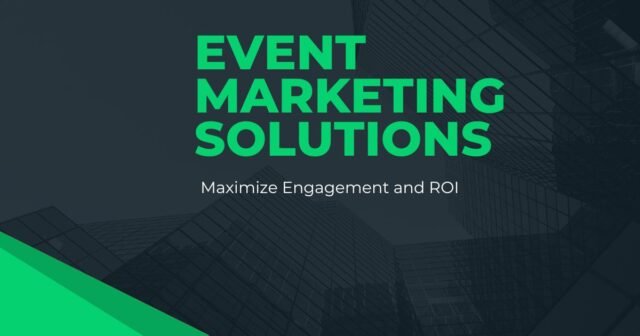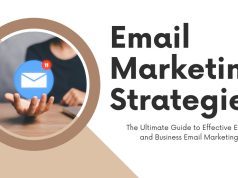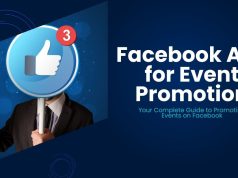Event marketing is one of the most effective ways to directly link to your audience, let alone build brand recognition and create appropriate relationships. However, with hybrid experiences, digital interactions, and local pictures all competing for attention, it’s not enough for an event to be well-organized on paper; it must stand out in other ways as well. This is an area where well-thought-out event marketing strategies can really shine.
Understanding the Importance of Event Marketing Solutions
Event marketing solutions are not just about hosting a conference or throwing a party. They encompass a range of strategies, tools, and technologies designed to promote an event, drive attendance, and amplify its impact. These solutions help businesses achieve critical goals, such as:
- Enhanced Brand Awareness: Events give your brand the platform to reach a targeted audience effectively.
- Customer Engagement: Interactive experiences foster connections and memories, helping differentiate your brand.
- Lead Generation: Events provide the perfect opportunity to capture qualified leads and build your customer pipeline.
- ROI Measurement: Advanced tools allow businesses to measure the effectiveness of their event marketing campaigns.
By tapping into smart event marketing strategies, you can deliver memorable experiences and measurable results.
Key Event Marketing Strategies That Work
Define Clear Goals and Metrics
Before you start planning an event, it’s essential to define your objectives. Are you aiming to enhance brand visibility, generate leads, or educate your audience? Having clear goals will guide your marketing approach and decision-making.
Once your goals are defined, establish measurable KPIs (key performance indicators). These could include:
- Number of registrations
- Conversion rates
- Social media engagement
- Attendee satisfaction
- Post-event sales
Leverage Data-Driven Insights
If you would like to have successful events, then understanding your audience is essential. Survey people, look at previous records, and use tools like Google Analytics or social media insights for more detailed info on their preferences, habits, and distinct preferences. This data will allow you to differentiate marketing to event needs in line with them.
For instance, say that past data shows access issues that have been an influential reason why your audience likes virtual formats more than others, then you can think about planning hybrid events or live streaming some important speeches.
Choose the Right Platforms
Event marketing thrives on the right mix of channels. Here are some avenues to explore:
- Email Marketing:
Use personalized email campaigns to reach your audience directly. Include compelling subject lines, engaging visuals, and clear calls to action. For example:
– “Don’t Miss Out! Reserve Your Spot for [Event Name] Today”
– “Ultimate Guide to [Event Name]: Download Now”
- Social Media:
Social platforms like Instagram, LinkedIn, and Twitter are invaluable for event promotion. Create a unique hashtag, run polls, and post teaser videos or behind-the-scenes content to build buzz.
- Event Websites:
A dedicated event landing page with details like date, time, venue, agenda, and speakers is key. Include an easy registration process and optimize for SEO with keywords like “event marketing solutions” to drive organic traffic.
- Paid Ads:
Boost awareness with paid campaigns through Google Ads, Facebook Ads, or LinkedIn Ads, targeting your desired audience based on demographics and interests.
- Partnerships:
Collaborate with industry influencers, sponsors, and partners who can tap into their networks, extending event reach.
Invest in Technology
Event tech is a game-changer. The right tools can enhance both the marketing process and the attendee experience. Consider using:
- Event Management Platforms (e.g., Eventbrite, Cvent): Simplify tasks like registration, ticketing, and attendee communication.
- Live Polling Tools (e.g., Slido, Mentimeter): Engage your audience with interactive Q&A sessions or real-time feedback.
- Analytics Tools (e.g., HubSpot, Marketo): Measure attendance rates, social engagement, and post-event conversions with ease.
- Augmented or Virtual Reality (AR/VR): Make your events more immersive with AR showcases or VR experiences.
Engaging Content is Key
Your marketing content should inspire and inform. Whether it’s a blog post, a webinar, or social media content, align your messaging with your audience’s needs. Here are some ideas:
- Countdown Posts:
Create excitement with posts like “3 days to go until [Event Name]!”
- Speaker Spotlights:
Highlight keynote speakers or panelists with short bios and engaging quotes.
- Video Teasers:
Use clips from previous events or behind-the-scenes footage to show what participants can expect.
Create a Buzz Before, During, and After the Event
Pre-Event:
- Start a countdown on social media.
- Host a pre-event live Q&A with event speakers.
During the Event:
- Post live updates or stories on Instagram and Twitter.
- Stream sessions online for a wider audience.
Post-Event:
- Send a follow-up email with event highlights, recordings, or exclusive offers.
- Encourage attendees to share feedback and testimonials.
Measuring Event Success
One of the most important aspects of event marketing solutions is tracking and evaluating success. Your KPIs should align with the goals set early on. Here’s how to do it:
- Surveys:
Use attendee surveys to gather feedback.
- Social Listening:
Monitor social media to see how people are reacting to your event.
- Analytics Platforms:
Track your event website traffic, email open rates, and ad performance.
- Comparative Data:
Compare results with past events to identify areas for improvement.
Take Your Event Marketing to the Next Level
Events are capable of echoing your name in the wind; they can make people regard you as their eternal partner, and of course, all that comes with it-expenses included. These event marketing strategies will help you do the following: They can read your point of view on effective on-site marketing, and strive to boost your overall customer experience at parties or in public venues.
Start now in implementing these methods for next year’s conventions, meaning fun activities will be planned right into what is normally a boring event – this can only be a good thing! All the attendees who find themselves with time on their hands are just likely to end up making your next trade show a smashing success.









